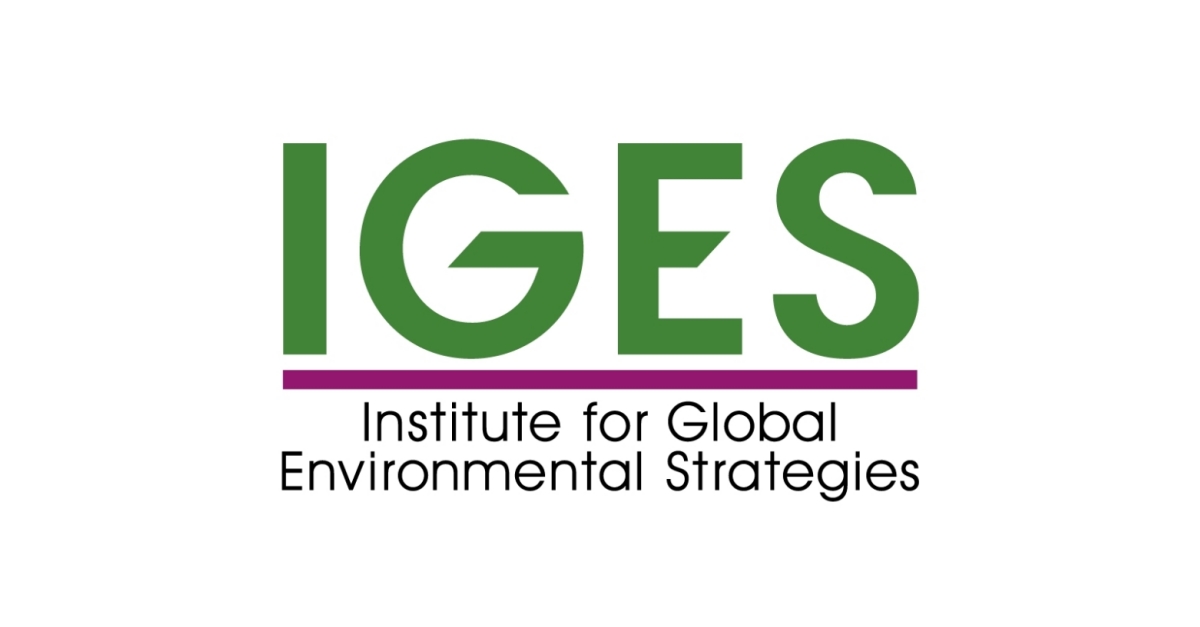Announcing the Establishment of the Technical Support Unit for the IPBES Task Force on Scenarios and Models of Biodiversity and Ecosystem Services in IGES
Announcing the Establishment of the Technical Support Unit for the IPBES Task Force on Scenarios and Models of ... Business Wire


Technical Support Unit (TSU) for the IPBES Task Force on Scenarios and Models of Biodiversity and Ecosystem Services Established

TOKYO–(BUSINESS WIRE)–On Friday 1 March 2024, the Institute for Global Environmental Strategies (IGES), in cooperation with the Ministry of the Environment, Japan, established the Technical Support Unit (TSU) for the Intergovernmental Science-Policy Platform on Biodiversity and Ecosystem Services (IPBES) Task Force on Scenarios and Models of Biodiversity and Ecosystem Services. The TSU will be located in IGES Tokyo Sustainability Forum (TSF).
Introduction
The IPBES Task Force on Scenarios and Models of Biodiversity and Ecosystem Services is a group of experts established to provide advice and support on scenarios and modelling for various IPBES assessment processes, including the implementation of a programme on scenarios that predict possible future situations for biodiversity and the models used to develop them. IGES expects the task force to provide the scientific information needed to assess progress in implementing the Kunming-Montreal Global Biodiversity Framework, the global biodiversity target for 2030.
IGES as the Host
IGES previously hosted the IPBES TSU for the Regional Assessment for Asia and the Pacific and the TSU for the Assessment of Invasive Alien Species and their control, and provided support to develop assessment reports. Based on these experiences, IGES has once again been entrusted by the government of Japan to host the IPBES TSU, making IGES the only organisation in the Asia-Pacific region to take on this role.
About IPBES
Established in 2012, IPBES (Secretariat: Bonn, Germany) is an international organisation with 145 participating countries and is known as the ‘biodiversity version of the IPCC’. With four main functions – scientific assessment, capacity building, knowledge generation and policy-making support, as an intergovernmental platform for clarifying the current status of global biodiversity and ecosystem services, changes and their drivers, and their impact on humanity, IPBES conducts scientific analysis and evaluation and makes policy recommendations based on the research of scientists from around the world.
IPBES website: https://www.ipbes.net/
About the Institute for Global Environmental Strategies (IGES)
The Institute for Global Environmental Strategies (IGES) is a collaborative research and outreach organisation working to accelerate the transition to a sustainable, resilient, shared and inclusive Asia-Pacific region, both across borders and within the world at large. Our strategic research and operations are defined by a mission to drive action on the world’s most critical environmental and social challenges through the delivery of trusted expertise on sustainable development and resilience. IGES operates as an agent of change and together with key international organisations, governments, academic institutes, business and civil society leaders, we seek to foster a world where planetary boundaries are fully respected, a green economy is flexibly implemented, and the well-being of people is steadily improved. In so doing we emphasise workable and inspired approaches to cross-cutting global development issues ranging from climate change, natural resources and ecosystems management, and sustainable consumption and production, among many others. The Institute was established in 1998 with support from the Japanese government and Kanagawa Prefecture and maintains its international headquarters in Hayama, Japan. With offices and local centres in Tokyo, Kansai, Kitakyushu, Beijing, Bangkok and New Delhi, IGES supports a regional and global network for ground-breaking sustainable development research and practice.
SDGs, Targets, and Indicators
-
SDG 15: Life on Land
- Target 15.5: Take urgent and significant action to reduce the degradation of natural habitats, halt the loss of biodiversity, and protect and prevent the extinction of threatened species.
- Indicator: The establishment of the Technical Support Unit (TSU) for the Intergovernmental Science-Policy Platform on Biodiversity and Ecosystem Services (IPBES) Task Force on Scenarios and Models of Biodiversity and Ecosystem Services.
-
SDG 17: Partnerships for the Goals
- Target 17.16: Enhance the Global Partnership for Sustainable Development, complemented by multi-stakeholder partnerships that mobilize and share knowledge, expertise, technology, and financial resources.
- Indicator: The collaboration between the Institute for Global Environmental Strategies (IGES) and the Ministry of the Environment, Japan, in establishing the Technical Support Unit (TSU).
Table: SDGs, Targets, and Indicators
| SDGs | Targets | Indicators |
|---|---|---|
| SDG 15: Life on Land | Target 15.5: Take urgent and significant action to reduce the degradation of natural habitats, halt the loss of biodiversity, and protect and prevent the extinction of threatened species. | The establishment of the Technical Support Unit (TSU) for the Intergovernmental Science-Policy Platform on Biodiversity and Ecosystem Services (IPBES) Task Force on Scenarios and Models of Biodiversity and Ecosystem Services. |
| SDG 17: Partnerships for the Goals | Target 17.16: Enhance the Global Partnership for Sustainable Development, complemented by multi-stakeholder partnerships that mobilize and share knowledge, expertise, technology, and financial resources. | The collaboration between the Institute for Global Environmental Strategies (IGES) and the Ministry of the Environment, Japan, in establishing the Technical Support Unit (TSU). |
Analysis
The article highlights the establishment of the Technical Support Unit (TSU) for the Intergovernmental Science-Policy Platform on Biodiversity and Ecosystem Services (IPBES) Task Force on Scenarios and Models of Biodiversity and Ecosystem Services. This initiative is directly related to SDG 15: Life on Land, which aims to reduce the degradation of natural habitats, halt biodiversity loss, and protect threatened species. The establishment of the TSU indicates efforts to take urgent and significant action towards these targets.
Additionally, the collaboration between IGES and the Ministry of the Environment, Japan, in establishing the TSU demonstrates progress towards SDG 17: Partnerships for the Goals. This SDG emphasizes the importance of multi-stakeholder partnerships that mobilize knowledge, expertise, technology, and financial resources to achieve sustainable development. The collaboration between IGES and the government of Japan exemplifies such a partnership.
The indicators mentioned in the article include the establishment of the TSU for the IPBES Task Force, which serves as an indicator for progress towards SDG 15, specifically Target 15.5. This indicator signifies the commitment to reducing habitat degradation, biodiversity loss, and species extinction. Additionally, the collaboration between IGES and the Ministry of the Environment serves as an indicator for progress towards SDG 17, particularly Target 17.16. This indicator reflects the enhancement of global partnerships for sustainable development.
Behold! This splendid article springs forth from the wellspring of knowledge, shaped by a wondrous proprietary AI technology that delved into a vast ocean of data, illuminating the path towards the Sustainable Development Goals. Remember that all rights are reserved by SDG Investors LLC, empowering us to champion progress together.
Source: businesswire.com

Join us, as fellow seekers of change, on a transformative journey at https://sdgtalks.ai/welcome, where you can become a member and actively contribute to shaping a brighter future.







